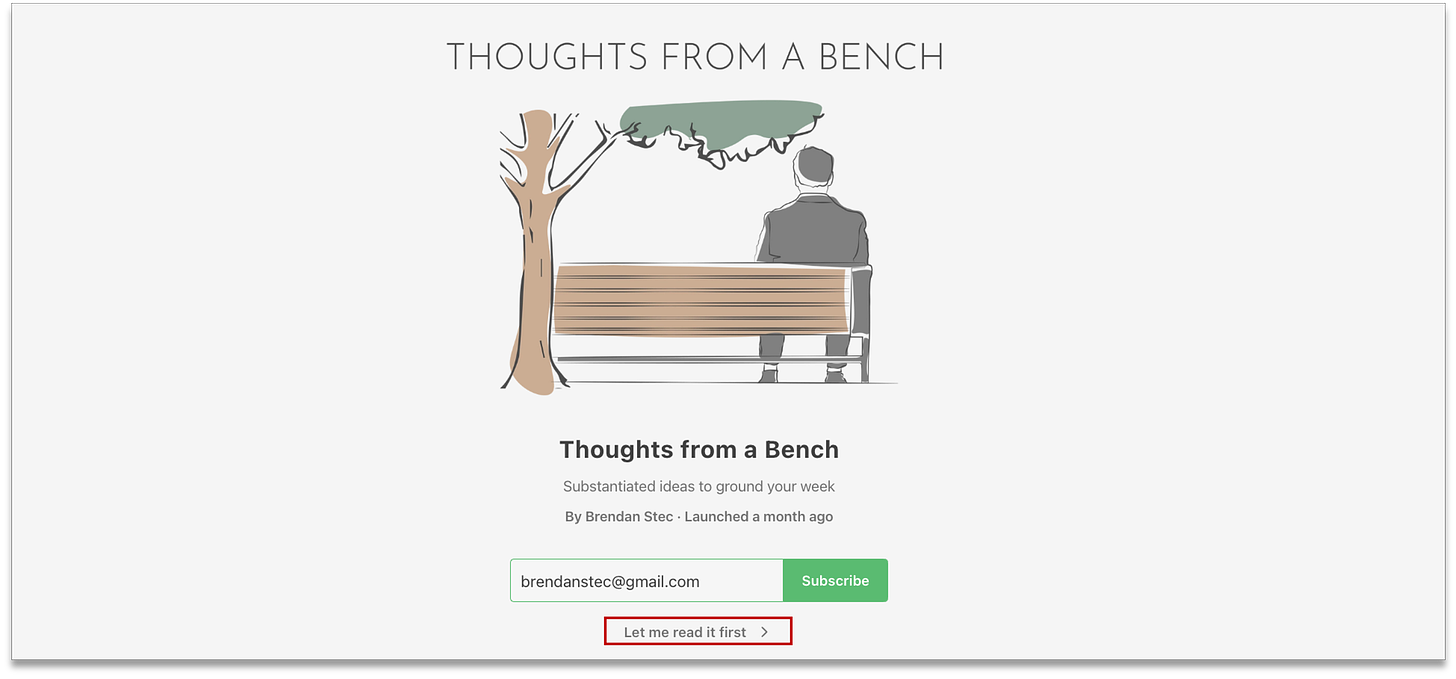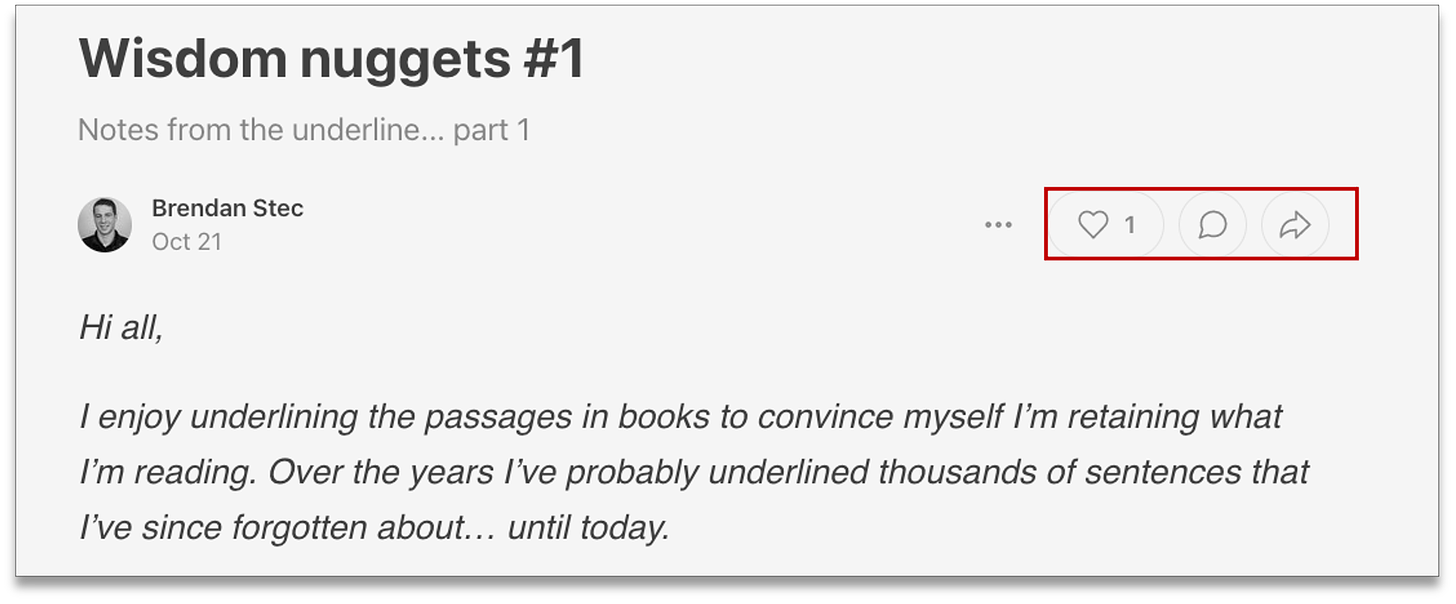Hi all,
As a quick reminder, you can read all of my recent articles on my new Substack website here. If the link takes you to the below screen, you can just click “Let me read it first” to get to the main page. There is an archive of about 7 articles from the last few weeks. Please leave me a comment or like if anything catches your eye!
In other news, this week’s crypto turmoil reminded me of some of Nassim Taleb’s insights in The Black Swan, namely:
“History and societies do not crawl. They make jumps. They go from fracture to fracture, with a few vibrations in between. Yet we (and historians) like to believe in the predictable, small incremental progression.”
Have a good rest of your week… and enjoy some of my new thoughts on work below.
Thanks!
Brendan
SBF has been in the news recently… not about bean bags, unfortunately. That’s about the only thing we have in common. We both enjoy a pleasant, lumbar-wrenching bean bag nap.
Where we diverge—crypto religion excluded—is our philosophy on work. I’m not quite the same level of workaholic.
Workaholism is a conflicting subject for many people. Most agree it’s a bad thing, but the WSJ ran a recent article that touched on the “upside”: many extraordinarily successful people seem to work quite a lot.
Who’s right? Is being a workaholic “worth it”? I don’t think there is a blanket answer. But I would like to offer insight into a related problem: working more than necessary. Should you work 8 hours a day or 10 hours a day? I’m not sure. But, I do know that you probably shouldn’t work 10 hours on something that could actually only take 8. That’s what I mean by working more than necessary.
I believe this often happens when we subconsciously believe that more hours = more value. We give ourselves more hours thinking we’ll get more done, but really what happens is we do about the same amount of work at a slower pace. It’s the inevitable outcome of Parkinson’s Law:
“Work expands so as to fill the time available for its completion.”
The more available time you give yourself, the more you let distractions, multi-tasking, perfectionism, and complacency creep in. It all adds up.
The challenge doesn’t end there. There are psychological and social factors that can crop up too, such as:
The hero mentality: You get addicted to feeling accomplished at the end of a long day, even of those long hours are an artificial obstacle of your own creation. As Jason Fried and David Heinemeier Hansson write in Re-Work, “[Workaholics] don’t look for ways to be more efficient because they actually like working overtime. They enjoy feeling like heroes. They create problems (often unwittingly) just so they can get off on working more.”
Avoidance: This is when you work longer hours as an excuse to avoid responsibility for other challenging or unappetizing aspects of life. As a victim of long hours (again, of your own creation), you’re suddenly absolved of the difficult commitments you make to yourself or others.
Mimesis: This is when you work longer hours because you see other people working longer hours. Ironically, these other people often work longer hours just because they see you working longer hours. It’s a feedback loop that preys on humanity’s natural proclivity to imitate. “When people are free to do as they please,” Erik Hoffer said, “they usually imitate each other.”
As we’ve seen, though, giving yourself longer hours than necessary often means you still accomplish about the same… just more slowly.
To combat this, I’ve found setting tighter deadlines on myself has incentivized me to work more efficiently. I try to put Parkinson’s Law to my advantage and streamline objectives to only what’s important. It does become easier to say no to distractions. The only challenge I’ve found with this approach is that with more efficiency comes more responsibilities from others. It comes back to the old saying that if you want something done, give it to the busiest person in the room. This isn’t necessarily a bad thing, but something to keep in mind when setting boundaries.
What strategies do you use to avoid working more than necessary?







